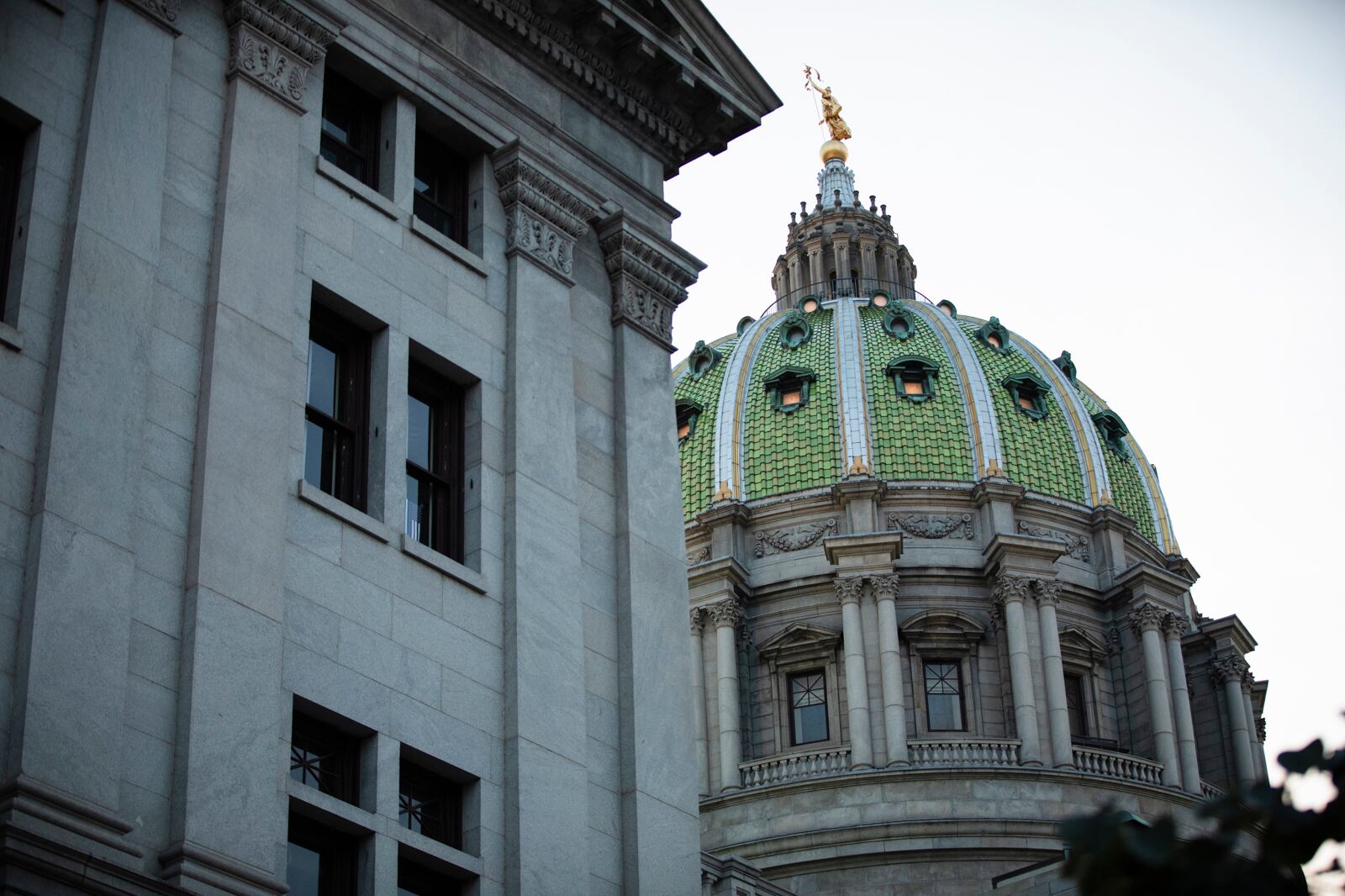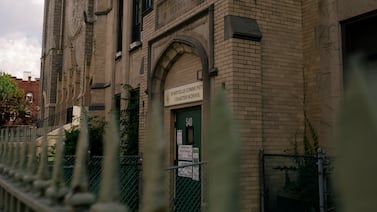Spotlight PA is an independent, nonpartisan, and nonprofit newsroom producing investigative and public-service journalism that holds the powerful to account and drives positive change in Pennsylvania. Sign up for our free newsletters.
HARRISBURG — Lawmakers have moved a step closer to finalizing the state budget and freeing up at least some of the stalled $1.1 billion in spending for everything from hospitals to public defense to home repairs, but the Pennsylvania House and Senate remain stubbornly at odds over education and other key costs.
While Democratic Gov. Josh Shapiro signed the commonwealth’s budget in early August, the legislation that directs that spending — known as code bills — has remained unfinished after talks deteriorated over a school voucher program that Republicans considered a priority.
On Wednesday, the GOP-controlled state Senate reconvened in Harrisburg for a day to pass some — but not all — of that missing language. These measures will still have to pass the Democratic-controlled state House, and leaders in the lower chamber have indicated they won’t do so without at least some changes.
The first of two bills was designed to include primarily “the uncontroversial things we all agree on,” as state Senate Leader Scott Martin (R-Lancaster) said on the chamber floor. It wasn’t without controversy, though — Democratic lawmakers criticized that the bill didn’t address the bulk of the stalled spending.
It would release funding for three programs, including increased reimbursements for first responders, which EMS providers argue is a bare-minimum requirement in an underfunded industry.
The bill also includes codes for regular allocations to hospitals and for judicial fees that courts rely on, and for which state authorization had expired at the end of July.
It also formalizes approval of a suite of other programs that had already been moving ahead with their budget spending, and for which the state budget secretary had not said new codes were necessary. These include funding for community colleges, aid to public libraries, and reimbursements for schools to provide universal free breakfast.
Senate Minority Leader Jay Costa (D-Allegheny) said that after speaking to his caucus he decided to vote against the bill because it does not fund programs that Democrats consider priorities, like the popular Whole-Home Repairs Program and a stipend for student teachers. Earlier that day, state Senate Democrats tried to amend the bill to add funding for those programs but the amendments were tabled.
“More work needs to be done on the other side of the aisle,” Costa said on the state Senate floor. The bill passed 29-18, with state Sen. Lisa Boscola (D-Lehigh) crossing party lines to vote with Republicans.
The more controversial bill passed by the Pennsylvania Senate on Wednesday included Republicans’ more partisan priorities, such as a reintroduction of the school voucher program that Shapiro already axed from the main budget — and which state House Democrats have summarily rejected.
It also includes additional funding for the Educational Improvement Tax Credit program, a tax break that businesses can receive in exchange for funding private school scholarships. It passed, 29-19 in a party-line vote.
Not included in either bill was code language for five programs Democrats have championed. Along with home repair and student-teacher stipends, these include funding for the commonwealth’s roughly 100 poorest school districts, allocation of new federal money for school mental health services, and Pennsylvania’s first-ever state funding for public defense.
An email obtained by Spotlight PA that was sent from state House Majority Leader Matt Bradford (D-Montgomery) to state Senate Majority Leader Joe Pittman (R-Indiana) on Monday indicated that the divide between the chambers still runs deep.
In the email, Bradford noted that the two parties had, as of Monday, exchanged no code language, and wrote that Pittman was “needlessly extending this and by creating an intentionally bifurcated structure.”
Bradford recommended instead that “the most constructive use of time would be to pass what’s absolutely necessary,” pointing to components the state Senate ended up including in their first code package, like extending the expiration dates on judicial fees and reauthorizing the hospital spending.
In a statement after the Senate’s Wednesday session, House Democratic leaders wrote that a fiscal code “is not an opportunity to renegotiate the budget.”
“Since House Democrats passed the Senate’s budget in July, we have repeatedly tried to work to arrive at an agreement,” they said. “Unfortunately, the Senate Republicans’ actions today do not advance the conversation toward finalizing the state’s budget in its entirety.”
A spokesperson for Shapiro said that today’s votes indicated that “conversations have not yet happened.” The statement added that, “legislative leaders have more work to do to stop talking past each other and instead find common ground on the unfinished business before them.”
In a statement released by her office following the upper chamber’s floor vote, Senate President Pro Tempore Kim Ward pinned the ongoing conflicts on Democrats.
“The Senate has done their best to give Gov. Shapiro and his counterparts in the House the necessary time to work through their party challenges, but the time has come that we must move beyond the broken deals and words and complete our work to ensure the fiscal solvency of our state,” Ward said, adding that House members should return quickly to complete the code process, even if they prefer to “provide a counteroffer to what has been passed.”
In the state Senate’s Wednesday session, lawmakers also advanced a bipartisan bill that would move up the date of Pennsylvania’s 2024 general election primary, which is currently scheduled for April 23, during Passover. That change is considered time-sensitive, and is broadly supported by Democrats and Republicans in both chambers — though they differ on precisely which date the primary should fall on.
As of Wednesday, the House is still scheduled to come back to order in late September. But a spokesperson for Bradford said they “are not foreclosing on the possibility that we may return sooner if an agreement is reached.”
BEFORE YOU GO … If you learned something from this article, pay it forward and contribute to Spotlight PA at spotlightpa.org/donate. Spotlight PA is funded by foundations and readers like you who are committed to accountability journalism that gets results.






